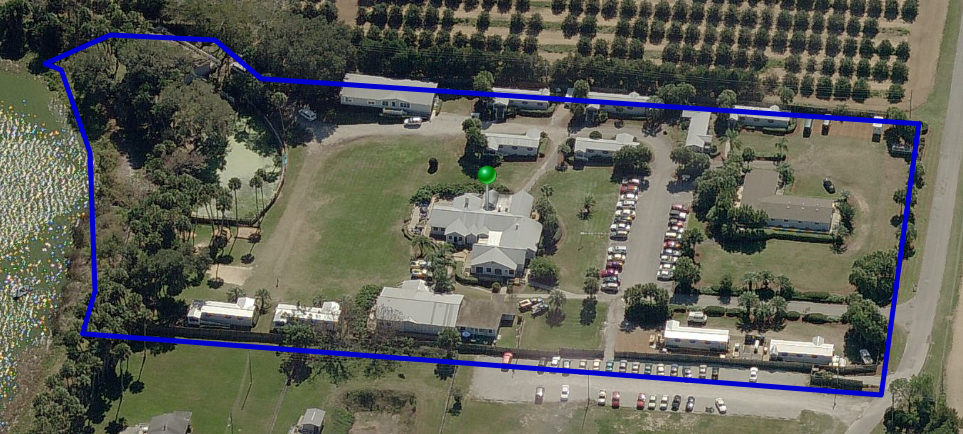UPDATE: DOE's Chief Turnaround Officer, Keith Sanders (of Miller-McCoy testing scandal fame) has resigned from his position in Dover effective July 15, 2014. I suppose it's just another hop, skip, and jump through Delaware onto greater fame and controversy!
While we are still awaiting confirmation, the rumor on the street is that DOE is planning to enact the next level of intervention in a Wilmington school.
At least one PZ schools is rumored to have failed to make AYP for in two years for two years. Here's the letter:
You can read the state's fancy description here: DRAMATIC IMPROVEMENTS
Here's a PZ reminder without going too deep into the code/regs/law:
Partnership Zone was established by former DE Sec of Education, Lillian Lowery, in conjunction with Gov. Jack Markell. The zone was written into Race to the Top as an ancillary item, intended to show the state's available resources and muscle when it came to affecting "change" in persistently low achieving schools.
The DE Dept of Education helped author language in a bill that codified the Partnership Zone. Our legislators passed this bill into law following the RTTT "win." Funding for PZ schools was a part of the consolidated grant. To access the allocated funding, local education agencies (districts and charter leadership) had to offer a plan (MOU) utilizing one of four (flawed) intervention models, Transformation, Turnaround, Charter, or Closure to DOE. To be relieved of PZ status, the school had to make AYP in two years for two years.
The regs also prescribed the next steps should a school fail to succeed in two years for two years under the chosen intervention model. In level one of PZ, the LEA could use one of the four intervention models. Most LEAs chose Transformation (not all) as it appeared to be the least disruptive for students. In the second level of PZ, Transformation is entirely off the table. These schools must choose either Turnaround, Charter, or Closure.
In Christina, the board was permitted to enact a model that merged both Transformation and Turnaround. Not sure if DOE ruled CSD schools were officially one or the other - regardless I do believe there is audio of the state's former PZ authority defining the CSD model as a "hybrid."
Thus, if a CSD school enters stage 2 of PZ, it's possible that both Turnaround and Transformation will be off the table, leaving the LEA with the choice of Chartering the school or closing it and sending its students to higher scoring schools elsewhere.
Hey, DOE, what's it gonna be?
By Elizabeth Scheinberg
http://perryville.patch.com/groups/police-and-fire/p/officials-call-for-investigation-into-group-home-where-boy-died9105714Maryland lawmakers are asking why the state has given $18 million in contracts to LifeLine Inc., the company operating the group home in Anne Arundel County where a 10-year-old “medically fragile” boy recently died.
The boy, identified only as Damaud, breathed with the help of a ventilator and died on July 2, Patch reports. He was under a “do not resuscitate” order, authorized by social services officials, according to Connie West, his education supervisor. Something as little as his tube clogging and not being changed fast enough could have killed him.
The LifeLine Inc. home, operating from a Laurel apartment complex, was already under scrutiny by the Maryland Health Department for allegations of neglect and staffing patterns, according to CBS Baltimore. The company has contracts with the state to provide care for developmentally disabled children, but the health and safety of children were allegedly not maintained.
The facility lacked the number of employees needed to actually provide 24-hour care for the children, according to Patch.
The other 10 children living in the facility have been moved, though the change is not linked to Damaud’s death.
Officials are waiting for an autopsy report to determine the cause of Damaud’s death.
Category:
0
comments
By Elizabeth Scheinberg
We've started a dialogue over at Kilroys, More Proof Delaware's Sec. of Education Lacks Capacity to Lead, about ICT and placements for children who need more services than are available in the State of Delaware. And since we are finally talking about this small, but important subset of children, we've been combing annual reports that date back 10 years.
Who's Lou? In the Annual Report issued for FY 2009, Lou is a composite profile of students served by ICT.
Meet Lou:
ICT, Annual Report February, 2010
Here's the great thing about Lou: I didn't have to make him up! The Delaware Department of Education did that for me! They created a fictional character to explain the severity of the needs of those children who pass through ICT's Gate!
As best as I can tell, Lou makes a one-time appearance in the history of online Annual Reports. Apparently, giving a face and name, albeit fictional, to this special population didn't sit well with others and he gets scrapped in future years.
But, we can't let this snapshot in time go without some discourse:
Where should Lou be served? Let's first dispose of that gut reaction to send Lou as far away as possible - this kid is going to be incarcerated and who among us wants to be his victim?
Where should he be served? Delaware.
What's the likelihood? Well, he's pretty much run the gambit of all services available, Rockford, Terry Center, out-patient mental health treatment. Lou's cure seems pretty elusive.
What does he really need? A structured day program where a call to the police is not the first option for treatment for his aggressive outbursts. Lou needs a locked day facility with staff who have been educated, trained, and developed to utilize a safe best practices-driven protocol to curbing teen violence acerbated by mental health defect.
Can Delaware provide that for a 12 year old? Crickets.
Who's Lou? In the Annual Report issued for FY 2009, Lou is a composite profile of students served by ICT.
Meet Lou:
ICT, Annual Report February, 2010
Here's the great thing about Lou: I didn't have to make him up! The Delaware Department of Education did that for me! They created a fictional character to explain the severity of the needs of those children who pass through ICT's Gate!
As best as I can tell, Lou makes a one-time appearance in the history of online Annual Reports. Apparently, giving a face and name, albeit fictional, to this special population didn't sit well with others and he gets scrapped in future years.
But, we can't let this snapshot in time go without some discourse:
Where should Lou be served? Let's first dispose of that gut reaction to send Lou as far away as possible - this kid is going to be incarcerated and who among us wants to be his victim?
Where should he be served? Delaware.
What's the likelihood? Well, he's pretty much run the gambit of all services available, Rockford, Terry Center, out-patient mental health treatment. Lou's cure seems pretty elusive.
What does he really need? A structured day program where a call to the police is not the first option for treatment for his aggressive outbursts. Lou needs a locked day facility with staff who have been educated, trained, and developed to utilize a safe best practices-driven protocol to curbing teen violence acerbated by mental health defect.
Can Delaware provide that for a 12 year old? Crickets.
Category:
0
comments
By Elizabeth Scheinberg
This story shouldn't sound all that different from the one published last July: http://elizabethscheinberg.blogspot.com/2013/07/delawares-14-million-question-why-does.html
However, if you happen to be up for re-election, you might want to read through to the end. The story hasn't changed that much- more students have more severe needs so we send them away to other states. However, on the tails of a scathing report from USDOE that confirms what special needs parents have been shouting for years, it's time we start the legislative fix needed to address ICT and keeping Delaware's children near home.
It's time to end the Delaware Solution of exiling our children - and to build capacity in our state to take care of our own, we must stop sending our neediest out-of-sight and out-of-mind. The Delaware Solution is not a secret:
Let's breakdown 2013:
In a room somewhere in Delaware a small committee of agency heads (or their designees) meet to determine the future of some our state's most severely dis-advantaged students.
These nine individuals and a designated coordinator compose the Interagency Collaborative Team, ICT, which is charged with determining whether a child's educational needs due a severe needs can or cannot be addressed through the existing resources of a single agency - specifically, the Delaware Department of Education and the programs, districts, and schools who receive their funding through the DOE conduit.
Collectively, this group charts the future for this very special subset of children and their families. These children are defined as having or requiring Unique Alternative Services. Often, the ICT decisions will permanently impact a family - geographically moving children out of the State of Delaware and away from their families.
In 2013, the cases of 120 children were brought before ICT - 15 more than in 2012. This committee evaluated 43 new cases, while privately placing 117 children and providing three with other unique alternatives, namely deeming these children eligible for 1:1 services in their existing public school setting. Sixty-six of the 117 privately placed children were served in private day programs while the remaining 51 were moved to residential programs.
Of the 51 students who moved into residential programs, 19 were served in-state at AdvoServ, located in Bear, DE. The remaining children, all 32 of them, were moved away from their families, their homes, and their support systems, and sent out of state by ICT. Ten of these 32 were fortunate enough to be accepted at one of two nearby facilities in Maryland (within an hour drive of the state line). The rest? Scurried great distances away, nearly ensuring that these families will never be reunited under one roof for an meaningful period of time.
The annual cost range of placing a student in a residential program: $107.985 -$441,924. Collectively, Delaware spent an average of $14,022,680.00 on residential services. ICT averaged additional costs of $3,291,823.60 on day placements - for a 2012-13 average expenditure of $17,314,504.00. These costs do not include ancillaries like transportation.
Three million more dollars than in the previous year.
We don't argue against the needs of these students. We do find fault in a state that fails to develop the service system these children need to remain close to their families.
Delaware suffers from a considerable gap in services - a tremendous shortage of in-state private placements for eligible children. Through the educational lens, these placements are envisioned for students whose disability is so severe that it precludes a child from meaningfully participating in the least restrictive environment (LRE) a public school or district has to offer. In fact, administrative teams are required to prove that every possible environment has been exhausted - including what the layman would call the "most" restrictive environment. Unique Alternative Funding, established by Delaware code and accessed through ICT, was the mechanism by which a child and/or school's representatives could seek a private placement.
However, in practice, ICT has become the stop-gap coverage for placing disabled students whose disabilities impede their success at home - the results of which may spill over into the school setting, but that school officials lack the authority to mitigate because they cannot access the genesis of the behavior or impairment. According to the 2012-13 ICT Annual Report, "Often these students can be provided an appropriate education within the local schools, but their mental health or behavioral needs prevent their ability to remain in their homes with existing resources" - a word-for-word quote taken from the 11-12 ICT Report.
And here is where the devil is in the details, and these children find themselves before ICT -frequently facing expulsion, not just from their schools, but from the state in which they live and the people who love them because this state has failed to invest in or attract the services and providers that these children need to remain here.
In 2011-12 upon meeting the requirement threshold, 23 families were forced to acquiesce to send their children out-of-state for the services they need. In 2012-13, the number of students in need rose to 32. We sent these children to other states who have developed capacity to serve not only their residents, but to generate income by serving ours.
There is no debate regarding whether or not these children need residential placements. ICT has repeatedly chanted the mantra that these cost of residential placements is prohibitive and drain on current resources. Our state's failure lies in the fact that a state as small as Delaware has been unable to establish nor meaningfully invest in the services that the complex needs of these students demand.
Currently, only one in-state residential program, Advoserv, offers the types of services required. And this organization lacks the capacity - either the appropriate model or the physical facilities - to absorb additional students.
The data is clear. In 2004, ICT residentially placed approximately 80 students. Placements trended downward in the ensuing five years to a low of approximately 30 in 2009 when the state moved away from educational classification as the gateway for special services to the Needs-Based Funding Model currently employed universally across the state. Since 2009, the need for residential placements is scaling upward with FY 12 demanding the same need as FY 07. FY13 is substantially similar to FY06.
The need is rising and has been since DOE implemented Needs-Based Funding. Is one tied to the other?
Day program placements have sky rocketed to a 10 YEAR HIGH! Why?
The road from point of crisis to placement is excessively long in Delaware. Short-term placements are just that, short in term and lean in services. The families of beyond-complex students fight their way through the red tape to be rewarded on the other side with the message that there is no home for your child in our state. And our statewide leadership has no qualms about sending this message. They already know what awaits these families - b/c they receive the ICT report annually.
But, the drama doesn't end for these families when their children are ferried away. Imagine fighting your way into a residential placement for your child, sending him or her off to a facility hundreds of miles away, and then undertaking the weekly or monthly travels necessary to maintain some relationship with that child. Imagine learning that, after your child has been served in another state for untold years, that if you relocate to that state to be near your child, your child will loose their services offered under Delaware's ICT umbrella b/c he or she will cease to be a resident of the state when you move out of it.
Children seldom improve enough to simply leave ICT placements. That would be akin to a massive miracle cure. It is far more likely that child that is residentially placed will age out of Delaware's system to be assumed by the home state of their residential provider upon the age of maturity - ultimately shifting the cost of lifelong care out of Delaware. Again, the devil is in the details. It's far less expensive to send 32 children out of state today, knowing that there is a determinate end to the expense of their care - 18 or more likely 21 - than there is in committing to assist in funding their lifelong care.
Forty years after IDEA, the State of Delaware has institutionalized discrimination against our most disabled citizens - denoting them to nothing more than second-class citizens. Where's the outrage? Where are the politicians? Where are the resources that are so desperately needed to ensure families have a chance to be families?
And again, the devil is in the details: While the conversations among the varying state agencies are on-going, according to the latest annual report, ICT's hands are tied to the system currently in place - "the provisions of Delaware Code are specific in their requirements."
If we want to see a change within the ICT system, we need a legislator to step up for our children and fight for them. Townsend? Kowalko? Williams? These children need you!
However, if you happen to be up for re-election, you might want to read through to the end. The story hasn't changed that much- more students have more severe needs so we send them away to other states. However, on the tails of a scathing report from USDOE that confirms what special needs parents have been shouting for years, it's time we start the legislative fix needed to address ICT and keeping Delaware's children near home.
It's time to end the Delaware Solution of exiling our children - and to build capacity in our state to take care of our own, we must stop sending our neediest out-of-sight and out-of-mind. The Delaware Solution is not a secret:
And all of this is okay with our Governor, his Budget Director, the President Pro-Tempore, the Speaker of the House, and the Controller General. As it stands, ICT issues one annual report, in February, to the aforementioned state leaders.
Let's breakdown 2013:
In a room somewhere in Delaware a small committee of agency heads (or their designees) meet to determine the future of some our state's most severely dis-advantaged students.
These nine individuals and a designated coordinator compose the Interagency Collaborative Team, ICT, which is charged with determining whether a child's educational needs due a severe needs can or cannot be addressed through the existing resources of a single agency - specifically, the Delaware Department of Education and the programs, districts, and schools who receive their funding through the DOE conduit.
The Interagency Collaborative Team (ICT) is authorized in Title 14 Delaware Code, Chapter 31, Section 3124. The purpose of the ICT is to provide a collaborative interagency approach to service delivery for children and youth with disabilities who present educational needs that cannot be addressed through the existing resources of a single agency. In addition to planning for individual children, the ICT identifies impediments to collaborative service delivery and recommends strategies to remove them.
ICT is comprised of representatives from:
- Division of Prevention and Behavioral Health Services,
- Division of Family Services
- Division of Youth Rehabilitative Services
- Division of Developmental Disabilities Services,
- Division of Substance Abuse and Mental Health
- Office of Management and Budget
- Controller General
- Exceptional Children Resources Group, DOE
- Chief Academic Officer, DOE
Collectively, this group charts the future for this very special subset of children and their families. These children are defined as having or requiring Unique Alternative Services. Often, the ICT decisions will permanently impact a family - geographically moving children out of the State of Delaware and away from their families.
In 2013, the cases of 120 children were brought before ICT - 15 more than in 2012. This committee evaluated 43 new cases, while privately placing 117 children and providing three with other unique alternatives, namely deeming these children eligible for 1:1 services in their existing public school setting. Sixty-six of the 117 privately placed children were served in private day programs while the remaining 51 were moved to residential programs.
Of the 51 students who moved into residential programs, 19 were served in-state at AdvoServ, located in Bear, DE. The remaining children, all 32 of them, were moved away from their families, their homes, and their support systems, and sent out of state by ICT. Ten of these 32 were fortunate enough to be accepted at one of two nearby facilities in Maryland (within an hour drive of the state line). The rest? Scurried great distances away, nearly ensuring that these families will never be reunited under one roof for an meaningful period of time.
The annual cost range of placing a student in a residential program: $107.985 -$441,924. Collectively, Delaware spent an average of $14,022,680.00 on residential services. ICT averaged additional costs of $3,291,823.60 on day placements - for a 2012-13 average expenditure of $17,314,504.00. These costs do not include ancillaries like transportation.
Three million more dollars than in the previous year.
We don't argue against the needs of these students. We do find fault in a state that fails to develop the service system these children need to remain close to their families.
Children and youth with severe disabilities, mental health concerns, and significant behavioral needs present unique challenges to schools and families. Gaps in services that support families and childrenin their homes and communities continue to exist. This has contributed to an increasing number of students’ placements in residential settings by multiple agencies. Often these students can be provided an appropriate education within the local schools, but their mental health or behavioral needs prevent their ability to remain in their homes with existing resources.- ICT Annual Report FY13
Delaware suffers from a considerable gap in services - a tremendous shortage of in-state private placements for eligible children. Through the educational lens, these placements are envisioned for students whose disability is so severe that it precludes a child from meaningfully participating in the least restrictive environment (LRE) a public school or district has to offer. In fact, administrative teams are required to prove that every possible environment has been exhausted - including what the layman would call the "most" restrictive environment. Unique Alternative Funding, established by Delaware code and accessed through ICT, was the mechanism by which a child and/or school's representatives could seek a private placement.
However, in practice, ICT has become the stop-gap coverage for placing disabled students whose disabilities impede their success at home - the results of which may spill over into the school setting, but that school officials lack the authority to mitigate because they cannot access the genesis of the behavior or impairment. According to the 2012-13 ICT Annual Report, "Often these students can be provided an appropriate education within the local schools, but their mental health or behavioral needs prevent their ability to remain in their homes with existing resources" - a word-for-word quote taken from the 11-12 ICT Report.
And here is where the devil is in the details, and these children find themselves before ICT -frequently facing expulsion, not just from their schools, but from the state in which they live and the people who love them because this state has failed to invest in or attract the services and providers that these children need to remain here.
In 2011-12 upon meeting the requirement threshold, 23 families were forced to acquiesce to send their children out-of-state for the services they need. In 2012-13, the number of students in need rose to 32. We sent these children to other states who have developed capacity to serve not only their residents, but to generate income by serving ours.
Last school year, the
State of Delaware miserably failed 32 students and their families. This
was not new news. Delaware has always lacked capacity to serve its
students needing residential placement in their home state.
There is no debate regarding whether or not these children need residential placements. ICT has repeatedly chanted the mantra that these cost of residential placements is prohibitive and drain on current resources. Our state's failure lies in the fact that a state as small as Delaware has been unable to establish nor meaningfully invest in the services that the complex needs of these students demand.
Currently, only one in-state residential program, Advoserv, offers the types of services required. And this organization lacks the capacity - either the appropriate model or the physical facilities - to absorb additional students.
The data is clear. In 2004, ICT residentially placed approximately 80 students. Placements trended downward in the ensuing five years to a low of approximately 30 in 2009 when the state moved away from educational classification as the gateway for special services to the Needs-Based Funding Model currently employed universally across the state. Since 2009, the need for residential placements is scaling upward with FY 12 demanding the same need as FY 07. FY13 is substantially similar to FY06.
The need is rising and has been since DOE implemented Needs-Based Funding. Is one tied to the other?
Day program placements have sky rocketed to a 10 YEAR HIGH! Why?
The road from point of crisis to placement is excessively long in Delaware. Short-term placements are just that, short in term and lean in services. The families of beyond-complex students fight their way through the red tape to be rewarded on the other side with the message that there is no home for your child in our state. And our statewide leadership has no qualms about sending this message. They already know what awaits these families - b/c they receive the ICT report annually.
But, the drama doesn't end for these families when their children are ferried away. Imagine fighting your way into a residential placement for your child, sending him or her off to a facility hundreds of miles away, and then undertaking the weekly or monthly travels necessary to maintain some relationship with that child. Imagine learning that, after your child has been served in another state for untold years, that if you relocate to that state to be near your child, your child will loose their services offered under Delaware's ICT umbrella b/c he or she will cease to be a resident of the state when you move out of it.
Children seldom improve enough to simply leave ICT placements. That would be akin to a massive miracle cure. It is far more likely that child that is residentially placed will age out of Delaware's system to be assumed by the home state of their residential provider upon the age of maturity - ultimately shifting the cost of lifelong care out of Delaware. Again, the devil is in the details. It's far less expensive to send 32 children out of state today, knowing that there is a determinate end to the expense of their care - 18 or more likely 21 - than there is in committing to assist in funding their lifelong care.
Forty years after IDEA, the State of Delaware has institutionalized discrimination against our most disabled citizens - denoting them to nothing more than second-class citizens. Where's the outrage? Where are the politicians? Where are the resources that are so desperately needed to ensure families have a chance to be families?
And again, the devil is in the details: While the conversations among the varying state agencies are on-going, according to the latest annual report, ICT's hands are tied to the system currently in place - "the provisions of Delaware Code are specific in their requirements."
If we want to see a change within the ICT system, we need a legislator to step up for our children and fight for them. Townsend? Kowalko? Williams? These children need you!
Category:
5
comments
By Elizabeth Scheinberg
It's DOE Burn and Churn:
Read it here: https://eboard.eboardsolutions.com/Meetings/ViewMeetingOrder.aspx?S=190001&MID=333
Ryan Fennerty, Executive Assistant to the Secretary of Education, resignation, effective June 27, 2014.
Wendee Bull, Aide to the Secretary of Education, resignation, effective June 6, 2014.
3/21/13 https://eboard.eboardsolutions.com/Meetings/ViewMeetingOrder.aspx?S=190001&MID=289
Appointments
Wendee Bull, Aide to the Secretary of Education, Office of the Secretary, effective February 21, 2013.
Ryan Fennerty, Executive Assistant to the Secretary, Office of the Secretary, effective February 1,2013.
Category:
3
comments
Subscribe to:
Posts (Atom)





